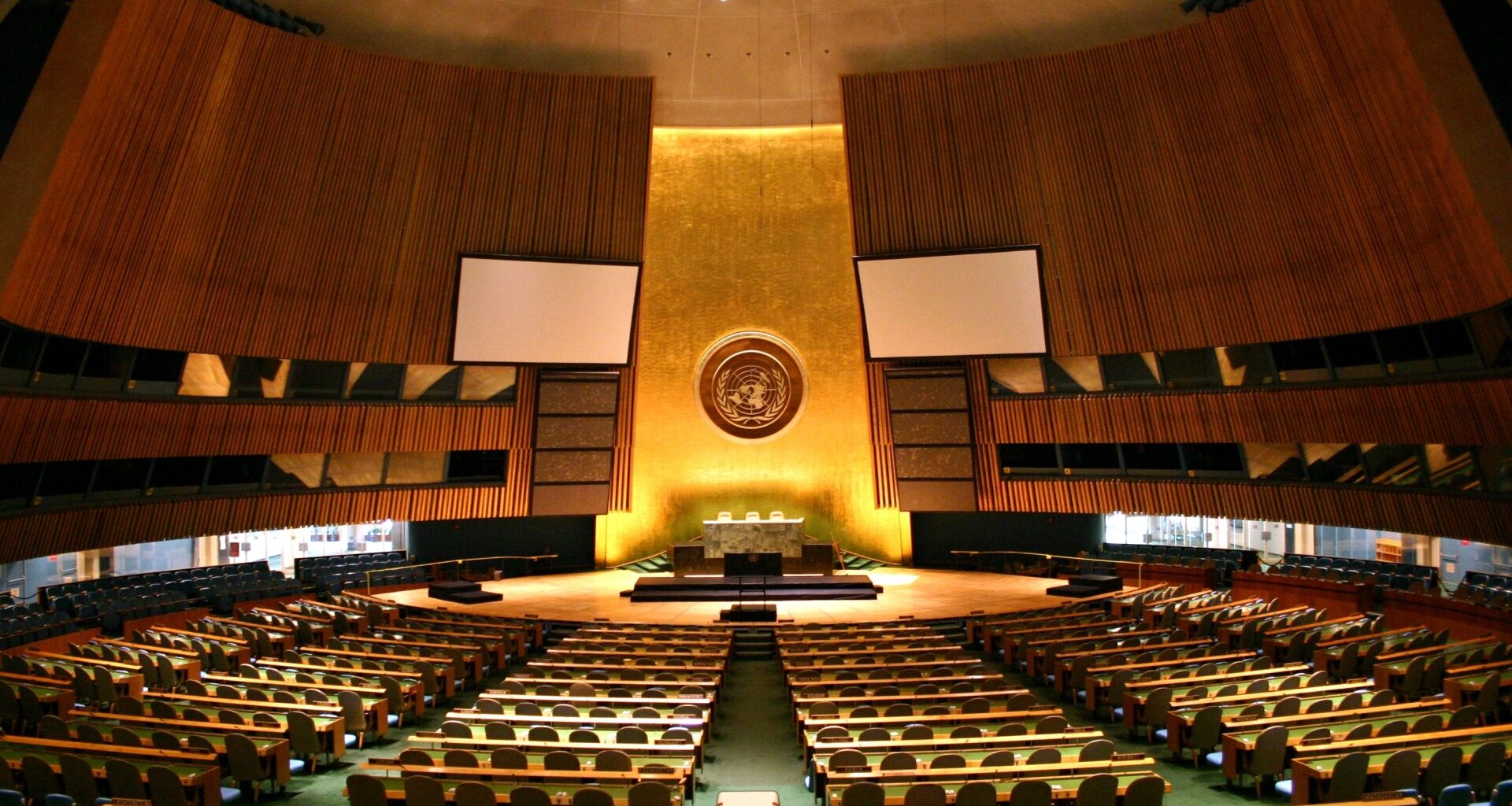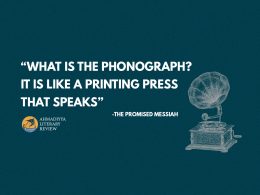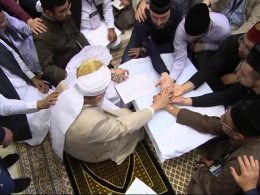The Holy Prophet Muhammad (sa) prophecied that when the Messiah would appear, he would fill the earth with justice. Since he will be the Messiah of The Mercy for Mankind (sa), such a Reformer will naturally be characterised by a teaching of peace. Reflecting upon the life of the Promised Messiah, Hazrat Mirza Ghulam Ahmad (as), we find him to be a complete fulfilment of this prophecy.
Paighame-Sulh (A Message of Peace) was one of the final books written by the Promised Messiah (as). In fact, it was completed on the 25th of May 1908—a day before his demise. The citizens of Lahore were the primary audience for this address. However its subject matter is in no way confined to them alone but is of vital importance to the entire population of the Indian subcontinent. Moreover, the principles laid down in the work are applicable to all countries that host multiple religions. In essence, it is a treatise on how various faiths (which often conflict) can co-exist. It is a treatise on international relations: the ideals and principles that the Promised Messiah (as) set out hold true even today.
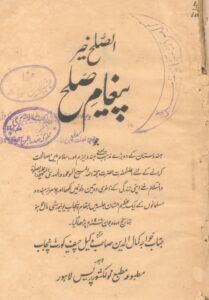
As the book is contextually set in India in the 20th century, the Promised Messiah (as) examines the religious tensions between Hindus and Muslims. He postulates that reconciliation is key for people to subsist through religious disparities.

THE COMMON DENOMINATOR: GOD IS FOR ALL
We all exist in order to do one thing. To Worship God. There is no debatable argument for this. So why do we have these strict and unnecessary grudges between us? The Promised Messiah (as) continuously argues that when people begin to accept that God does not belong to a particular people or nation, that His mercy extends to all corners of the earth and He has blessed every nation through His Grace, then the self-created pride and feeling of superiority, that often causes discord, shall abate. The Promised Messiah (as) states in the start of his book:
“Muslims and Hindus alike share one thing in common, i.e., we all believe in God, the Creator and Master of the Universe. Also, we belong to the same denomination of God’s species and are referred to as humans.”
It is interesting to note that almost all of the addresses of Hazrat Khalifatul-Masih V (aba) end on how we all ought to turn towards God and only then can mankind be saved from the destruction it faces. In Paighame-Sulh we find this at the beginning: a common denominator, something that unites as opposed to divides. It is along these lines that the Holy Qur’an too brings Muslims, Christians and Jews together when it says:
Say, ‘O People of the Book! come to a word equal between us and you—that we worship none but Allah, and that we associate no partner with Him, and that [a]some of us take not others for Lords beside Allah.’ [3:65]
We are “God’s species”. He holds power over us. So we are never in a position to hold our heads above the rest of the human race. We are all equal. Equality is the message in Paighame-Sulh. The Promised Messiah (as) says in his book: “a religion which does not inculcate universal compassion is no religion at all. Similarly, a human being without the faculty of compassion is no human at all”.
FOR THE SAKE OF PEACE, LOVE THY NEIGHBOUR
We should remember that the continuous discussion of Hindu-Muslim relations is a blueprint for how such groups with opposing ways of life, opposing beliefs, and opposing characteristics, yet equal patriotism, can co-exist in peace. One such ideal is to accept that it is better to live in harmony than to seek to completely dominate another race . The Promised Messiah (as) writes:
“If one is beset with a calamity, the other will inescapably share it. If either one intends to humiliate the other, out of egoistic pride or vanity, then it will not escape the consequent disgrace itself. And if anyone among them falls short of showing concern for his neighbour, then he too will suffer the ill effect of his callousness. Anyone who contemplates annihilation of the other is like one who saws off the branch on which he is sitting.”
DO NOT CURSE THE GODS OF OTHERS
When we cast a glance at that which has rocked the Muslim world today and has caused enmity to grow between Muslims and the West, we find character assassination and the mischaracterisation of those who are held in great esteem to be common in the name of freedom of speech. This is a perfect recipe for disaster. How can there be peace when one group openly abuses the beloved of another? Therefore, the Promised Messiah (as) deemed abusing holy men to be a poison for society, even going as far as requesting the British government to place a ban on refuting the beliefs of other religions and only propagating the benefits of one’s own religion. The Promised Messiah (as) writes:
“A country whose inhabitants are always after finding faults in the leaders of others, and constantly assassinate their characters, can never rest in peace themselves. Such people can never achieve true unity who, individually or mutually, refer to each other’s Prophets or saints or divines with malice or foul language. Who would not be outraged at the insults hurled at their Prophet or leader?”
The Promised Messiah (as) strongly believed that Islam could continue to flourish if all that was discussed, written and published was the teachings of Islam and the beauty behind its ideals. In the well known Philosophy of the Teachings of Islam—which is an incredible treatise on Islamic beliefs as attested by friend and foe alike—where the Promised Messiah (as) prophesied the greatness of his paper, he also listed a quality of this Philosophy as being a book that only discusses the merits of Islam and does not attack the beliefs of Christianity or Hinduism etc.
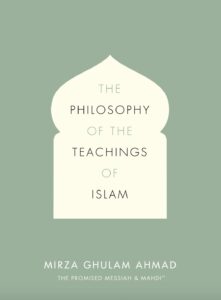
In today’s age, where there is much abrasion between differing belief systems and ways of life, if this were to be adopted, it would lead to a significant decrease in hostility towards that which people find to be alien. The yearning the Promised Messiah (as) had for peace can be determined in Paighame-Sulh through a proposed contract he drafted that would establish peace:
“If Hindus and those belonging to the Arya faith were prepared to make a complete truce whereby they accept our Prophet (sa) to be a true Prophet of God and in future agree to refrain from contempt and slander, then I am ready to be the first to sign the following treaty:
We, the members of the Ahmadiyyah Jama‘at, will testify to the truth of the origin of the Vedas, and will speak of the Vedas and their Rishis with respect and love, and if we do not honour our part of the contract, we will be liable to pay a fine of not less than three hundred thousand rupees to the Hindu community.”
Three hundred thousands rupees in 1908 equals almost £1.5 million today—this too for the sake of peace: something he genuinely wanted. He further stated:
“My dear ones, there is nothing like peace and compromise. Let us unite with the blessing of this treaty and be one nation. You know full well that denial17 on both sides has thrown us apart and that our country is suffering greatly. Visualise how blessed it could prove to testify to each other’s truth. Come, give this a try now. This is the best course for achieving peace.”
RELIGION, NOT POLITICS, IS THE REAL REASON FOR DISCORD
What we also learn is that at the heart of political differences is religious discord. Though many claim this to be untrue and a varying outlook on politics to be the foundation for distrust between Hindus and Muslims, when examined closely, it is religion that wears a facade of politics. How can this be fixed? According to the Promised Messiah (as), all displays of love and affection, without heartfelt sincerity towards each others’ religious founders, will be temporary and shallow. Only when different races and nations look upon the founders of all religions with respect, can true peace begin to take shape.
For example, the Promised Messiah (as) explains that the issue of Hindus feeling enmity towards Muslims as Muslims eat beef which is considered holy in the Hindu faith. The Promised Messiah (as) writes that if Hindus accept the truthfulness of the Holy Prophet Muhammad (sa) and look upon him with regard and reverence, then Muslims will be happy to stop the consumption of beef. He writes:
“If the Hindus sincerely accept the proposition of testifying to the truth of our Holy Prophet (may peace and blessings of Allah be upon him) and of having faith in his truth, then what remains regarding the split on the issue of cows can be done away with…There are many things which we know to be lawful yet we do not necessarily practice them. To treat Hindus with decency and kindness is one of the important Islamic injunctions—. If for the sake of achieving a higher goal one forgoes a right, it will not be against the spirit of the Divine law.”
Such was the yearning the Promised Messiah (as) had for the establishment of peace that he asked his Community to give up that which was permissible (i.e the use of beef) in order not to offend other countrymen.
A GRAND BLUEPRINT FOR ETERNAL PEACE
Paighame-Sulh is unique. It is peerless in what it offers to mankind: a blueprint which can be used in any country for the resolution of any dispute. The ideals that have been set out by the Promised Messiah (as) tell us how much he desired for peace to prevail—it was on his mind a day before his demise.
Whenever we listen to the addresses of Hazrat Khalifatul-Masih V (aba), we find the same arguments being used to stop another world war that were advanced by the Promised Messiah (as) over a century ago. As such, it becomes our responsibility to familiarise ourselves with them. We ought to deeply study the writings of the Promised Messiah (as), not merely reading every word, but pondering over its deeper meanings.





